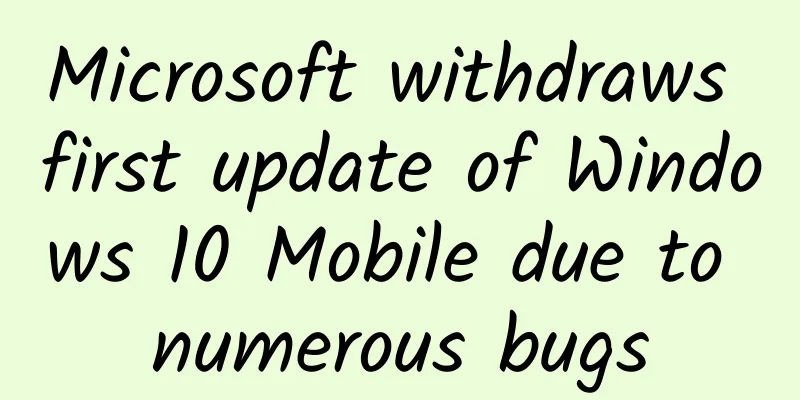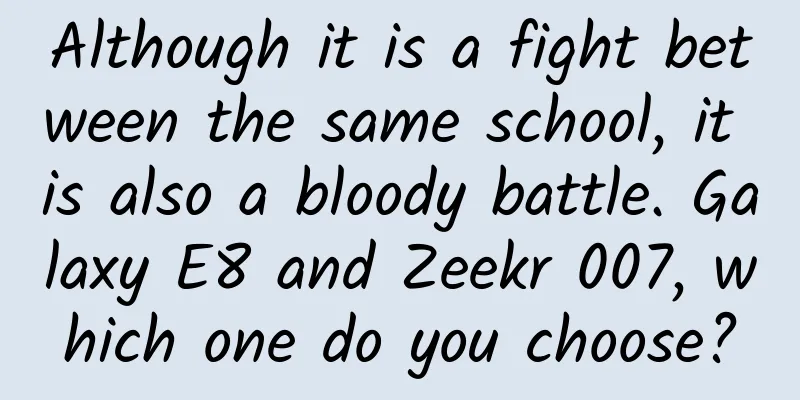Why can Xiaomi become a virtual operator?

|
China Telecom announced the third batch of virtual operators the day before yesterday (July 7), including HNA, Foxconn, Lenovo, Hisense, Ping An, Minsheng, Star Media, Phoenix, Haier, and Xiaomi. This list is really shocking. The most hotly debated one is Xiaomi. Three years ago, when Xiaomi entered the mobile phone industry with many giants, no one could have imagined that "focusing on extreme word-of-mouth and fast" could subvert the industry in a short time. What will happen if it enters the virtual operator this time and faces even bigger giants? The third batch of lists is eye-catching. In the past, companies that applied for virtual operators were either engaged in communication-related channels or communication-related services. Companies like JD.com, Suning, Gome, D.Phone, Tianyin, and Aishide are all traditional mobile phone channels, occupying the convenience of channels to make efforts; while Beiwei Communication, Lianlian Technology, Langma Information, Sanwu Internet, Alibaba (Wanwang), etc., some do recharge, some do communication, and some do value-added services. However, except for Alibaba's strong resources, it is still a bit difficult for others to really make efforts. And the companies that applied this time obviously have a lot more local tyrants. There are three main categories: The first category is hardware manufacturing giants, including Xiaomi, Lenovo, Foxconn, Haier, and Hisense. Their advantage is that they provide communication equipment, such as mobile phones, tablets, and even various smart hardware in the future, which is what everyone must buy when purchasing communication services. The second category is financial giants, including Ping An and Minsheng. Their advantage is that they are very close to money. They have even launched baby products for phone bills. How to operate phone bills well and provide convenient payment and financial services based on mobile devices is their focus. The third category is entertainment media: including Star Media and Phoenix (I don’t know if it is the same Phoenix). Their advantage is content. In the era of mobile Internet, content is the core, but the content giants have not yet entered the market, so it is hard to say whether they can make waves. Their arrival is more powerful than the previous two rounds. However, it is not easy to analyze it carefully. It is the most difficult for entertainment media to do business. In addition to the advantages of content, media lacks sales channels and service channels, and has weak financial strength. It is still a layman to play communications. It is not easy for financial giants to cross over to communications. Even if they have the convenience of size, channels and funds, they are two completely different business forms after all. Ping An and Minsheng's move is more about laying out future mobile payments and trying from the field of industry applications, which will basically not impact existing operators. Among the hardware manufacturing giants, Foxconn is too biased towards manufacturing, and its channel capabilities and service capabilities are insufficient, which is more like playing around. Haier Hisense has both home appliance and mobile phone sectors, but its mobile phone share is basically outside the mainstream. However, for Haier Hisense, which has ambitions for smart homes, it is still quite imaginative to make efforts in the field of the Internet of Things after obtaining a license, especially Haier, which has recently made major adjustments and started to push smart hardware. It is quite feasible to enter from this perspective. The most challenging ones are Xiaomi and Lenovo. Both of them have amazing mobile phone market share, and both have begun to lay out smart hardware and smart homes. When the combination of terminals and channels becomes increasingly close, it is the most natural thing to make channels through terminals. Xiaomi's capital Lenovo is not mentioned for the time being. Let's talk about Xiaomi first. Of course, there are many commonalities. What capital does Xiaomi have to counterattack operators? I think there are probably several aspects: First, the huge sales volume of Xiaomi terminals, which can become the most direct source of new communication users. Recently, Lei Jun revealed that Xiaomi's sales volume in the first half of the year was 26 million units, and it is expected to exceed 60 million units for the whole year. Moreover, compared with China Cool Alliance, Xiaomi's terminal sales are less dependent on operator channels, and there is more room for strategic and tactical maneuvers. Imagine if Xiaomi bundled a sim card with the terminal when selling it, or even directly inserted a sim card for free, including a certain amount of experience, how many new users would this bring? In fact, in the previous release plan of a certain Xiaomi product, the issue of bundling cards was also discussed with operators. At that time, Xiaomi's starting point was just to bring convenience to customers-the card comes with the device, and there is no need to buy it separately. The second is Xiaomi's UI ecological capabilities. Mi UI can become the main interface for its communication business sales and services. In Xiaomi's words, they are not only selling terminals, but also accumulating a growing number of users. Every time a terminal is sold, a user is acquired. Therefore, even if the sales of Xiaomi terminals slow down in the future, Mi UI still has a huge number of users and can obtain a large number of user behaviors. Moreover, the most important thing is that Mi UI has payment capabilities and can form a business ecosystem. I have talked with the person in charge of Mi UI. The most common operation done by Mi UI users is to check the traffic. In fact, they can also know the usage of each user. If it is connected with the channel business, the overall service capability is no less than that of operators. For example, what Mi UI has always wanted to do is to remind users to recharge their traffic when their traffic is running out, or recommend paid applications based on their usage behavior. The third is Xiaomi's product capabilities. The original hardware and software integrated design capabilities, coupled with channel capabilities, may form a deeper bundle. China Mobile proposed the concept of converged communications at the beginning of the year, hoping to carry all services through traffic and directly replace the phone calls, text messages and other entrances of the mobile phone. However, since China Mobile's control over the terminal and software levels is not strong, it must rely on the manufacturer's capabilities to form an alliance to promote it. Previously, I have analyzed the tariff design of Ali Communication and felt that its tariff design is very simple. In fact, it also uses traffic as a unified measurement standard, but it still lacks control over the terminal. But Xiaomi has such advantages and can form a de facto converged communication. However, even with these advantages and a large number of die-hard fans, it is not so easy to counterattack. After all, there are two core considerations for people to buy communication products, one is price and the other is quality. As for quality, the network is controlled by the basic operators. If there are really various problems (such as problems with calls, Internet access, coverage, etc.), it may not be convenient for virtual operators to handle them. It is faster to directly find the actual carrier of the network to solve it (but don't scold, if the network is handed over to Xiaomi and Ali, it may not be better than the basic operator). In addition, although Xiaomi has a good interactive community, such a service system can be complained about, but it is still not as good as the customer service hotline of existing operators to support after-sales services such as communication products with more real-time requirements. As for the price, the pricing power is still in the hands of the basic operators. After all, the real investment in network construction and maintenance lies in the basic operators. No one is willing to hand over what they have worked hard to build, but this will lead to high resale prices. Just as the previous analysis showed that the weakest point of Ali Communications is its high tariffs, it is also difficult to reduce Xiaomi's tariffs, unless Lei Jun is more "sincere" and makes more concessions. However, concessions will inevitably put it under huge financial pressure. In fact, Xiaomi's financial situation is far less than that of operators. Operators can do a lot of cross-subsidies and terminal subsidies (even now they are required to reduce the amount of terminal subsidies). Of course, with the entry of hardware manufacturers represented by Xiaomi and Lenovo into the battle, coupled with Internet giants such as JD.com and Alibaba, the drama in the communications market will surely be exciting. As a winner of Toutiao's Qingyun Plan and Baijiahao's Bai+ Plan, the 2019 Baidu Digital Author of the Year, the Baijiahao's Most Popular Author in the Technology Field, the 2019 Sogou Technology and Culture Author, and the 2021 Baijiahao Quarterly Influential Creator, he has won many awards, including the 2013 Sohu Best Industry Media Person, the 2015 China New Media Entrepreneurship Competition Beijing Third Place, the 2015 Guangmang Experience Award, the 2015 China New Media Entrepreneurship Competition Finals Third Place, and the 2018 Baidu Dynamic Annual Powerful Celebrity. |
<<: US user tests iPhone 6 panel: no trace left even after being scratched by a knife
>>: Apple and Google Maps break up
Recommend
This popular internet celebrity plant is really difficult to grow!
In recent years, the "cold" style of gr...
Under the double reduction policy, the market for unpopular products with strong demand from primary school students can generate a profit of 300+ per order.
To see how strict the current double reduction pol...
iOS 11 has so many bugs, what does Cook think? (with bug solutions)
In order to adapt to iPhone X and iPad Pro, iOS h...
How to promote and operate App?
In recent years, mobile Internet has developed ra...
Today I went to experience a safe and reliable tea drinking place in Kunming
Kunming tea tasting has its own studio. Recommend...
Electric Technology Car News: Jaguar E-Pace lowers its profile to create the cheapest coupe SUV. Can it escape the fate of being sold at a discount?
Despite its luxury brand positioning, Jaguar has ...
He is the first person in China's optical fiber industry. Your "WiFi freedom" cannot be separated from him! |Time Letter
Special Project of Beijing Science Center Origina...
Consumer Reports tests Model 3 fully autonomous driving: Not worth it
There is a saying circulating on the Internet: &q...
Amazing technology that is expected to move from science fiction movies to reality
We may have never been so close to the future. Yo...
2B operation: How to reach target users?
I haven’t posted an article for a long time. As a...
From soy sauce and liquor to Musk's brain-computer interface, how far are we from American-style industry-university-research?
Only one year later, Musk's Neuralink company...
Five common misunderstandings about APP promotion and download, have you fallen into them?
Misconception 1: Thinking that code release will ...
A quick guide to time management: Manage your time and become the master of it
Everyone is a manager of time, but most people ju...
How do companies gain fans crazily on Douyin?
Tik Tok has a strong ability to bring goods, spre...
What mobile developers need to know about pixels
[[124454]] Pixels are very familiar to web develo...









